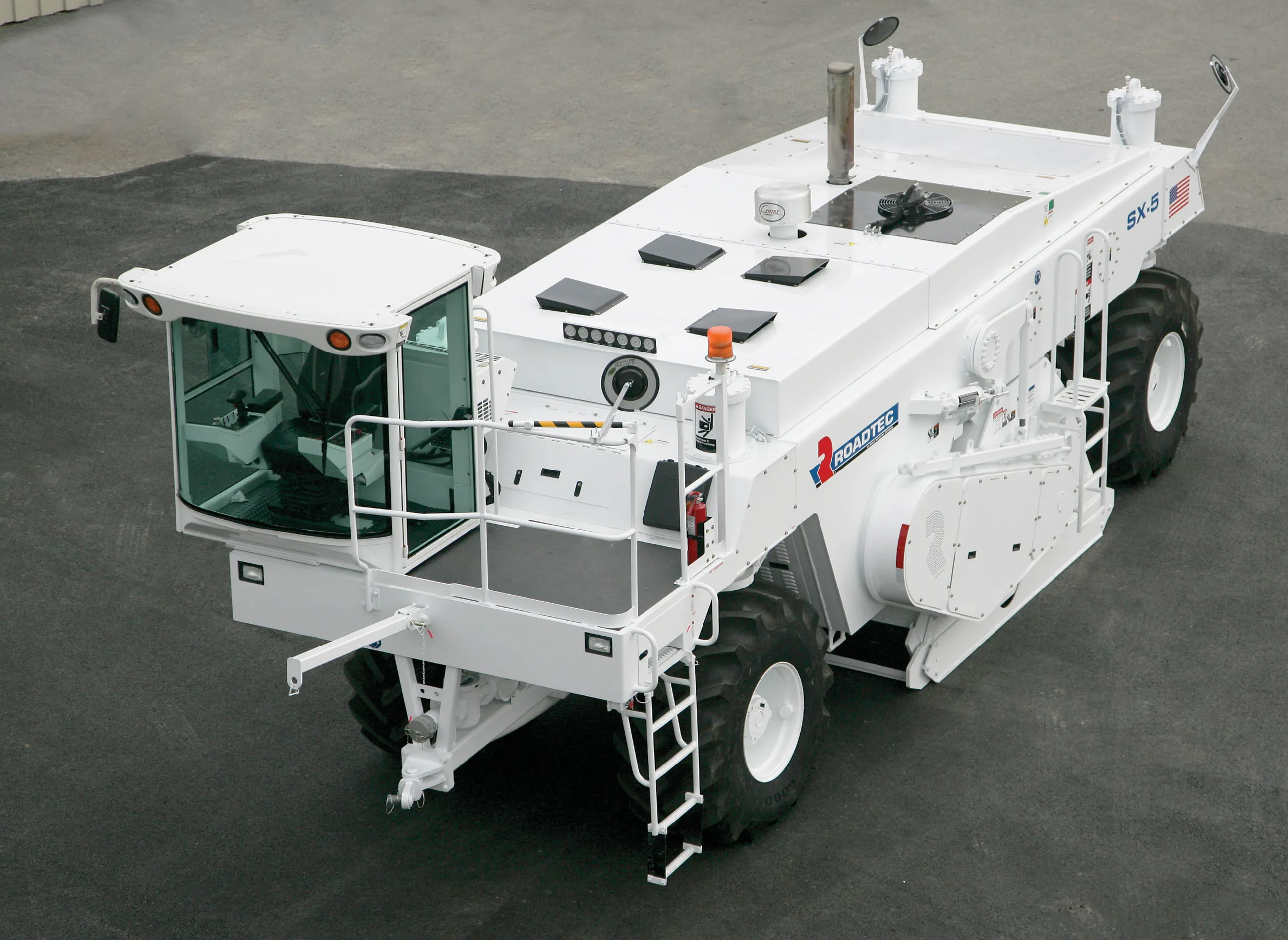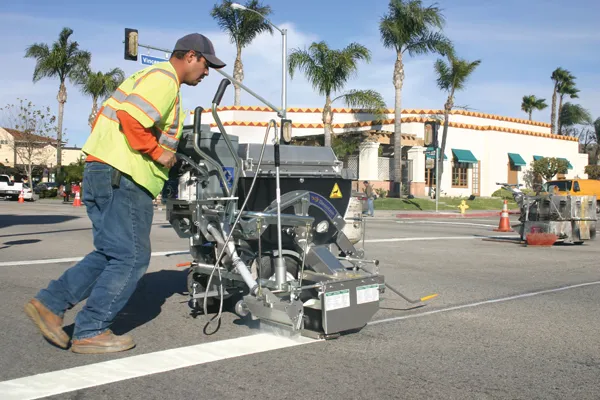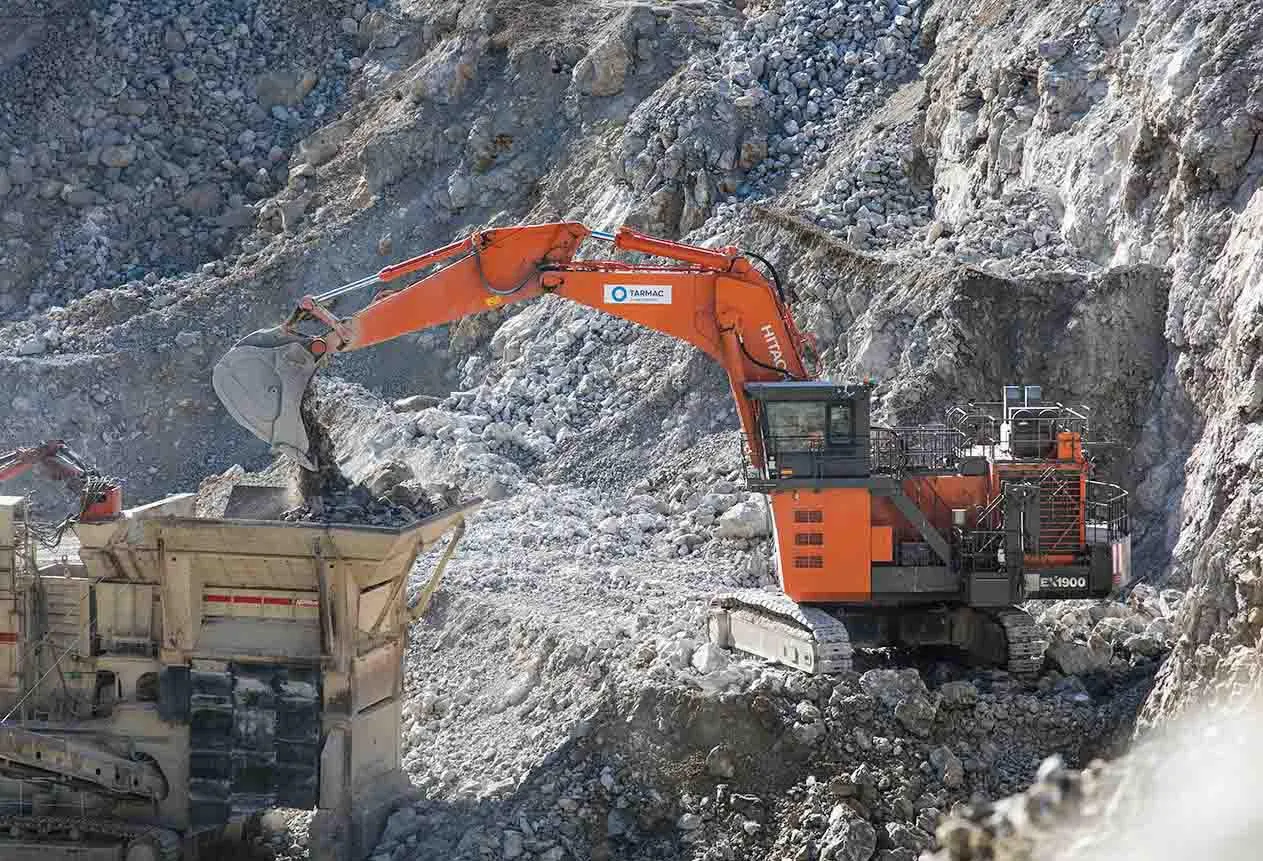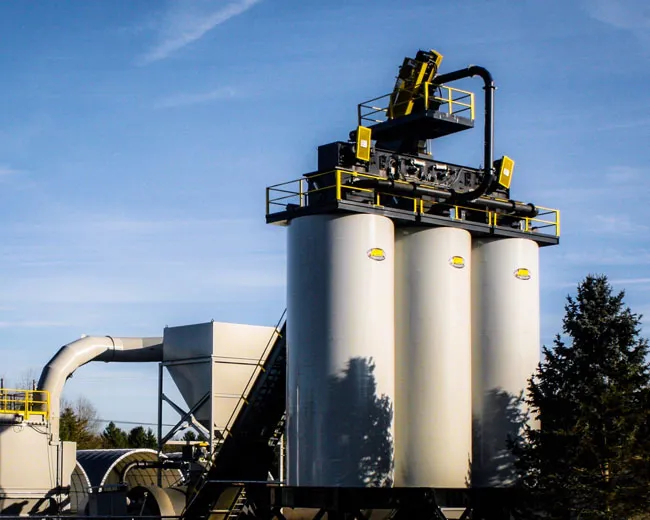Bell Equipment is introducing a 60tonne articulated dump truck, designed to compete with rigid haulers in quarry applications. Currently in prototype form, the B60E uses much of the front chassis and cab from the company’s B50E 50tonner. However behind the articulation joint, the truck has a shortened chassis with a single Kessler rear axle and twin rear wheels.
This shorter rear chassis carries a shorter, squarer 35m2 dump body, that offers a similar loading target for excavators and shovels used to rigid
January 6, 2017
Read time: 2 mins
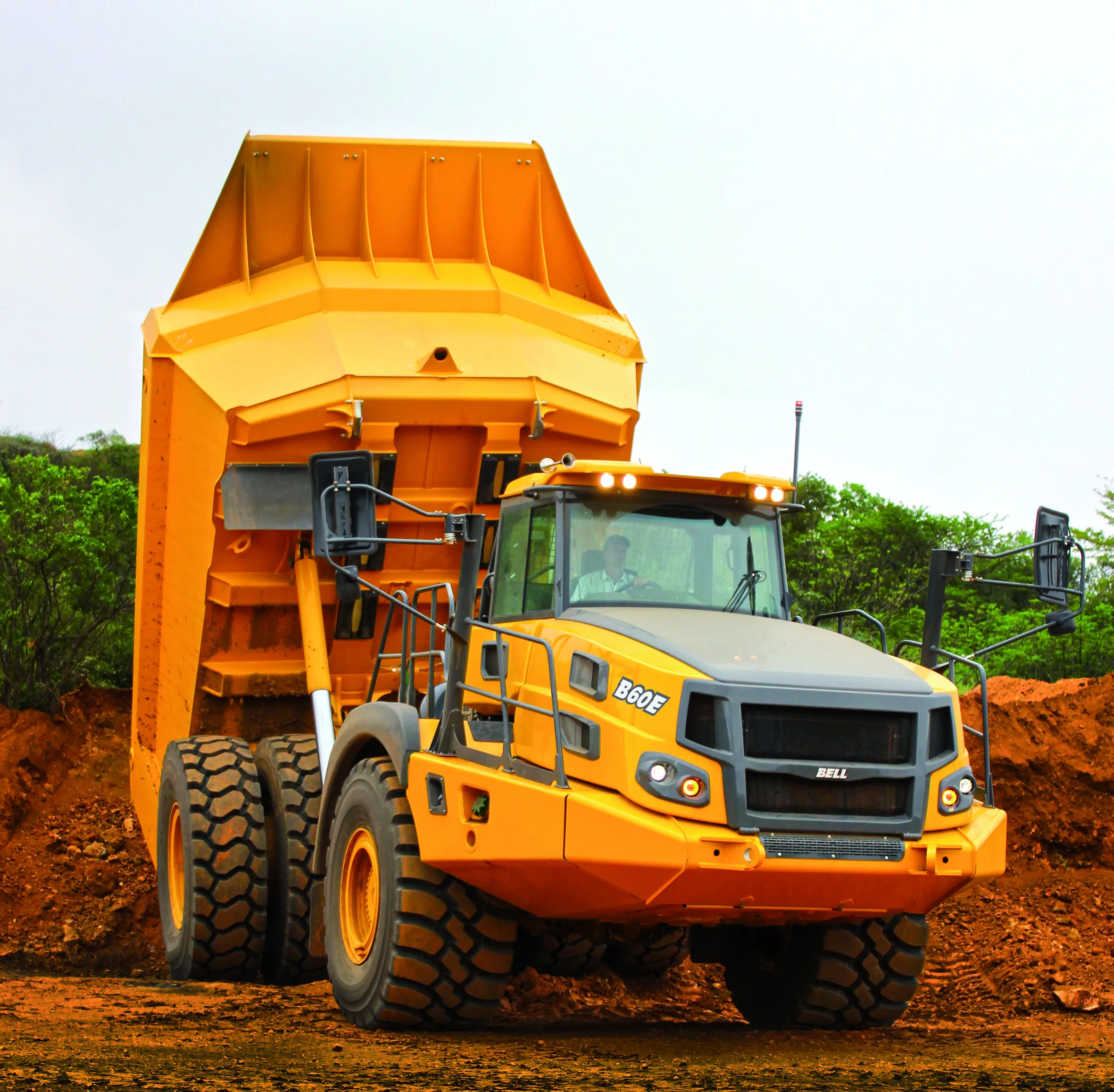
This shorter rear chassis carries a shorter, squarer 35m2 dump body, that offers a similar loading target for excavators and shovels used to rigid truck designs. The truck uses under-body hydraulic tipping rams like a rigid truck, rather than the side-mounted rams of a conventional ADT. The B60E is powered by an
"By combining the ADT concept as we know it with the single rear axle, we came up with a 4x4 with full articulation steering and oscillation joint and that gives us the ability to keep all four driving wheels on the ground and fully utilise the traction that's available,” said product marketing manager Tristan du Pisanie.
“This gives our 60tonne truck more off-road capability than any conventional rigid truck. The rear chassis and suspension are distinctly different from an ADT concept. A cradle supports the rear axle with struts being used to create shock absorption for a controlled ride.”
The B60E has been designed for hard ground applications, such as mines and quarries, with tight turns.
“However, the B60E's real niche is where wet weather conditions can adversely affect traction and rigid trucks would normally have to stop production when rain falls,” said du Pisanie.


